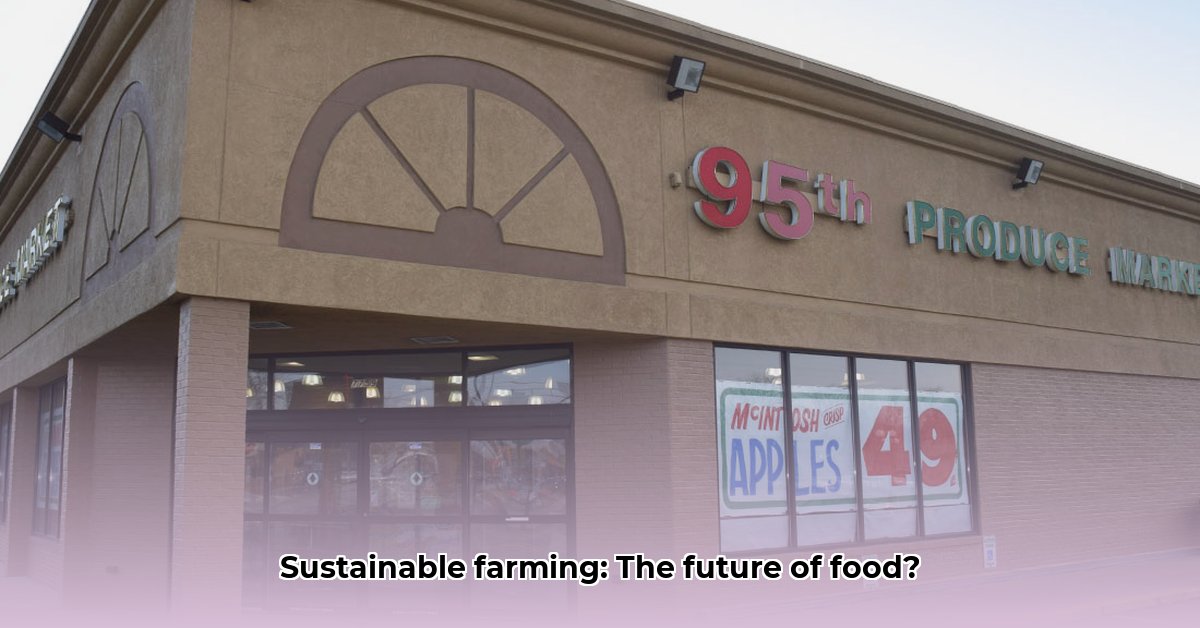
95th Produce Market positions itself as a purveyor of sustainable produce, emphasizing locally sourced goods to minimize transportation-related emissions ("food miles"). However, their sourcing also includes imports from countries like Greece, Italy, and Poland, creating a complex picture of their overall sustainability. This analysis examines their practices, identifies key challenges, and offers actionable recommendations for increased transparency and improved sustainability.
Transparency and Traceability: Key Areas for Improvement
A significant gap exists in 95th Produce's communication of its sustainability efforts. Crucially, information regarding the origin and farming methods of their local produce remains largely unavailable. This lack of transparency opens the market to accusations of "greenwashing"—marketing practices that exaggerate environmental benefits. Without detailed information on farming practices (organic certification, water conservation methods, pest control strategies), it's impossible to confidently assess the true sustainability of their local sourcing. This is a critical area needing immediate attention. How can consumers trust claims of sustainability without verifiable information?
Assessing the Trade-offs: Local vs. Global Sourcing
The duality of 95th Produce's sourcing presents a trade-off between local sourcing benefits (reduced carbon footprint from transportation) and the broader product variety enabled by global imports. While local sourcing contributes positively to environmental sustainability, the lack of transparency about the farming methods used undermines its positive impact. Importing goods, on the other hand, increases the overall carbon footprint, especially considering the distances involved. This dilemma highlights the complexities of balancing local and global sourcing strategies within a broader sustainability framework. What is the actual carbon footprint reduction achieved through their local sourcing? Precise data is needed to quantify this claim.
Actionable Recommendations for Enhanced Sustainability
To achieve greater sustainability and build consumer trust, 95th Produce and relevant stakeholders must implement the following:
For 95th Produce Market:
Implement Traceability System (Short-term): Develop and publicly share a transparent system for tracking the origin and farming methods of all produce, regardless of origin. This should include clear labeling detailing origin, farming practices (organic certification where applicable), and transportation methods.
Obtain Third-Party Certifications (Long-term): Pursue relevant certifications (e.g., USDA Organic, Fair Trade, or other sustainability-focused certifications) to demonstrate a commitment to and independently verify sustainable practices.
For Consumers:
Demand Transparency (Short-term): Actively inquire about the origin and farming practices of produce before purchase, encouraging vendors to disclose complete information.
Support Sustainable Businesses (Long-term): Prioritize purchasing from businesses demonstrating a clear and verifiable commitment to sustainable and ethical practices.
For Local Farmers:
Foster Collaboration (Short-term): Partner with 95th Produce Market to increase the supply of locally sourced produce using sustainable farming methods.
Invest in Sustainable Practices (Long-term): Advocate for access to resources and training that promote the adoption of environmentally friendly farming techniques (e.g., water conservation, integrated pest management).
For Governments and Regulatory Bodies:
Incentivize Sustainable Practices (Short-term): Offer financial incentives (grants, subsidies) to farmers adopting sustainable agricultural practices, making environmentally responsible farming more accessible and economically viable.
Strengthen Labeling Regulations (Long-term): Implement stricter regulations regarding food labeling accuracy and transparency, particularly regarding sustainability claims, to combat greenwashing and ensure consumer protection.
Mitigating Risks: A Proactive Approach
The lack of transparency exposes 95th Produce to several significant risks, including damage to brand reputation ("greenwashing" concerns), loss of consumer trust, and potential regulatory non-compliance. Addressing these risks proactively through increased transparency and verified sustainable practices is paramount.
Conclusion: Building a Sustainable Future
The path towards a truly sustainable food system requires collective effort. By prioritizing transparency, implementing verifiable sustainable practices, and fostering collaboration among all stakeholders, 95th Produce Market can enhance its sustainability profile, strengthen consumer trust, and contribute to a more environmentally responsible food industry. The future of sustainable agriculture depends on clear communication, verifiable data, and effective partnerships across the supply chain.